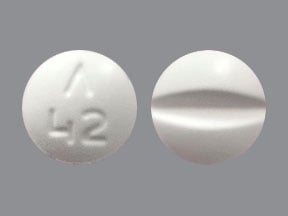
Acetazolamide Coupons & Savings Card – Discount Prices from $6.68
My prescription
Edit
125MG, Acetazolamide (30 Tablets)
Select pharmacy

CVS
$20.05
COUPON PRICE
Walmart
$6.68
COUPON PRICE
Walgreens
$12.18
COUPON PRICE
Albertsons
$14.95
COUPON PRICEAcetazolamide savings card
Show this card to your pharmacist
Walmart
$6.68
BIN
ID
PCN
GRP
019876
LH873108DD
CHIPPO
LHX
Powered by
Related carbonic anhydrase inhibitors prescriptions
More prescriptions for glaucoma
Related carbonic anhydrase inhibitors prescriptions
More prescriptions for glaucoma
Acetazolamide dosage forms
Dosage Quantity Price from Per unit 125MG 30 Tablets $6.68 $0.22 125MG 6 Tablets $3.34 $0.56 125MG 12 Tablets $4.17 $0.35 125MG 100 Tablets $22.93 $0.23 125MG 120 Tablets $25.71 $0.21 250MG 1 Tablet $2.69 $2.69 250MG 12 Tablets $4.76 $0.40 250MG 50 Tablets $11.94 $0.24 250MG 60 Tablets $13.82 $0.23 250MG 100 Tablets $27.43 $0.27
| Dosage | Quantity | Price from | Per unit |
|---|---|---|---|
| 125MG | 30 Tablets | $6.68 | $0.22 |
| 125MG | 6 Tablets | $3.34 | $0.56 |
| 125MG | 12 Tablets | $4.17 | $0.35 |
| 125MG | 100 Tablets | $22.93 | $0.23 |
| 125MG | 120 Tablets | $25.71 | $0.21 |
| 250MG | 1 Tablet | $2.69 | $2.69 |
| 250MG | 12 Tablets | $4.76 | $0.40 |
| 250MG | 50 Tablets | $11.94 | $0.24 |
| 250MG | 60 Tablets | $13.82 | $0.23 |
| 250MG | 100 Tablets | $27.43 | $0.27 |
| 250MG | 120 Tablets | $29.92 | $0.25 |
Acetazolamide Warnings
This section provides essential safety information and warnings regarding the use of acetazolamide. Please consider these points carefully and discuss any concerns with your healthcare provider.
Electrolyte and Acid-Base Imbalances: Acetazolamide may lead to imbalances in electrolyte levels, such as reduced sodium and potassium, and can cause metabolic acidosis. Individuals with kidney or respiratory issues are at greater risk. Be vigilant for symptoms like nausea, muscle cramps, fatigue, rapid breathing, or confusion, and inform your provider if they occur.
Blood Sugar Fluctuations: This medication can alter blood sugar levels. Diabetic patients should monitor their blood sugar closely while on acetazolamide. Notify your healthcare provider if you notice unusual changes, and be aware of low blood sugar symptoms such as shakiness, anxiety, or a fast heartbeat.
Aspirin Interaction: Avoid using high doses of aspirin alongside acetazolamide, as this combination can lead to serious side effects, including loss of appetite, breathing difficulties, fatigue, or even more severe outcomes like coma or death. Always consult your healthcare provider before combining these medications.
Allergic Reactions: Some individuals may experience severe allergic reactions to acetazolamide, especially if they have a sulfa allergy. Symptoms can include skin rashes, fever, blood issues, or anaphylaxis. Additionally, some extended-release capsules may contain FD&C Yellow No. 6, which can cause sensitivity in certain people. Discontinue use immediately and seek medical help if you experience hives, blistering, breathing difficulties, or swelling of the tongue or throat.
Pregnancy Risks: The effects of acetazolamide on an unborn baby are not fully understood, but animal studies suggest potential birth defects. It should only be used during pregnancy if the potential benefits outweigh the risks. If you are pregnant or planning to conceive, discuss the safety of this medication with your healthcare provider.
Contraindications: Acetazolamide is not suitable for everyone and should be avoided in the following conditions:
- Hyponatremia (low sodium levels)
- Hypokalemia (low potassium levels)
- Severe kidney or liver problems, including liver cirrhosis
- Adrenal gland failure
- Hyperchloremic acidosis (excess acid in the body)
- Long-term use in individuals with chronic angle-closure glaucoma
For any of the above conditions, consult with your healthcare provider to determine if acetazolamide is appropriate for you.
Acetazolamide Side Effects
Common side effects:
- Dizziness
- Lightheadedness
- Increased urination
- Blurred vision
- Dry mouth
- Drowsiness
- Tiredness
- Headache
- Loss of appetite
- Nausea
- Vomiting
- Diarrhea
- Changes in taste
Less common but important to monitor:
- Ringing in the ears
- Numbness or tingling of the face, arms, or legs
- Changes in urination
Serious side effects:
- Tingling of the hands or feet
- Hearing loss
- Unusual tiredness
- Easy bleeding or bruising
- Fast or irregular heartbeat
- Muscle cramps or pain
- New or worsening eye pain
- Mental or mood changes
- Signs of liver or kidney problems
- Symptoms of infection (persistent sore throat, fever, or chills)
- Very serious allergic reaction (rash, severe dizziness, trouble breathing, swelling of face, tongue, or throat)
Acetazolamide Interactions
Interactions with high risk of serious adverse effects and should be avoided:
Interactions with moderate risk that may require dose adjustment, closer monitoring, or timing changes:
- Memantine
- Lithium
- Orlistat
- Topiramate
- Zonisamide
- Acyclovir
- Adefovir
- Amphetamine
- Arsenic Trioxide
- Benzphetamine
- Carbamazepine
- Ceritinib
- Dextroamphetamine
- Digitalis
- Droperidol
- Furosemide
- Levomethadyl
- Lisdexamfetamine
- Methamphetamine
- Methotrexate
- Porfimer
- Proscillaridin
- Quinidine
- Sotalol
- Valacyclovir
